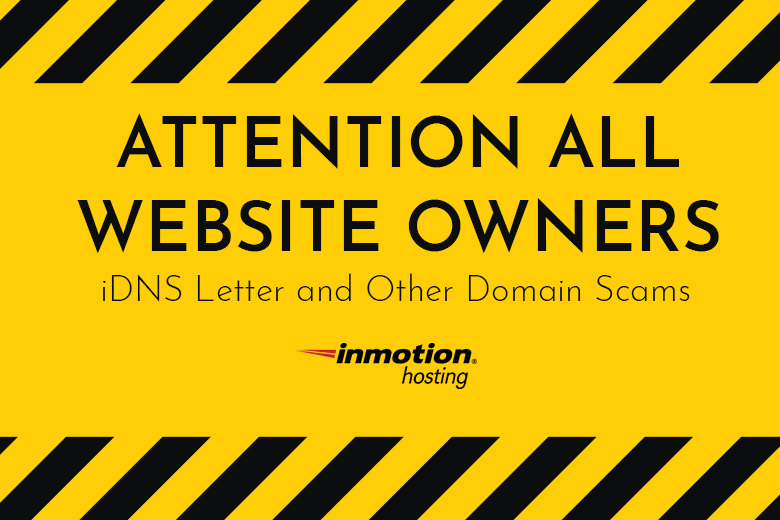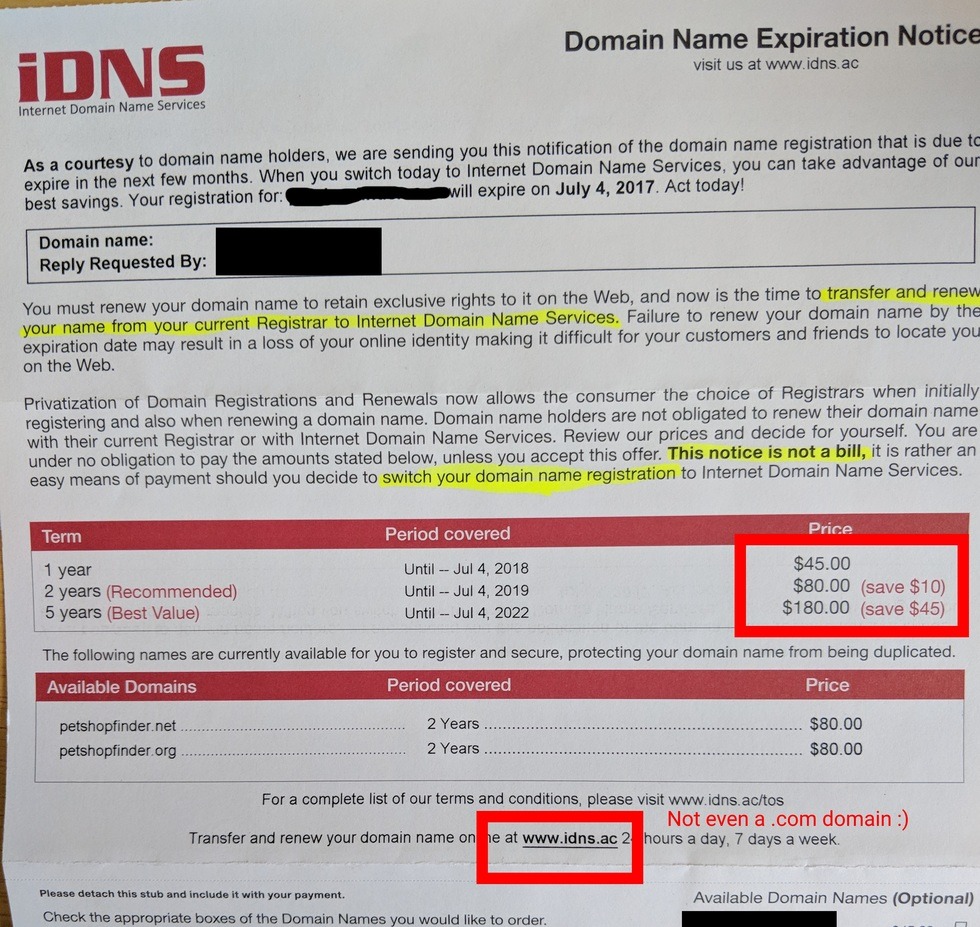
Almost since the day the very first person connected a computer to the internet, it seems that there have been people trying to scam others out of their hard-earned money. Recently, two such scams crossed our desks and we feel we must pass these on to you as they are specifically targeting website owners who operate businesses and also owners of personal blogs.
These are actually pretty professional fake letters and invoices that people are receiving which are duping them into believing that the scammers are legitimate. Let’s take a look at some clever cons and how to avoid them:
iDNS Invoice
The first of these comes in the form of an invoice from iDNS (Internet Domain Name Services). On the surface, the invoice looks like any other bill that you would receive at your office and not think twice about paying. It includes information about your website domain name, so it seems as if this bill is connected in some way to services rendered for maintenance or registration of the website.

As such, the invoice is requesting a payment of anywhere from $45 to $180. However, as with many things, it’s important to read the fine print.
When you look at the bottom of the invoice, you should see the following statement: solicitation for the order of goods or services, or both, and not a bill, invoice, or statement of account due. You are under no obligation to make any payments on account of this offer unless you accept this offer.
That’s right—this isn’t a bill, but a cleverly constructed ad. The statement at the bottom will protect iDNS from being sued, but it is obviously meant to target business owners with websites, particularly those who aren’t very savvy about what type of services they are offered by their web host provider.
So, do you need iDNS’s services? The company is offering to take over your domain registration for an outrageous fee, so we would say, no, you do not need iDNS’s services. If you receive a bill like this from iDNS, just toss it aside. You don’t actually owe them any money and those who have paid have found it almost impossible to get their money back.
Domain Registry of America
This is another popular scam that has been floating around for some time. When it comes time for your domain registry to expire, you will receive a renewal notice from your hosting company or whichever service you actually registered the domain with.
These scammers will try to get their letters to you before the real ones arrive. You get a letter from them stating that your domain is about to expire (which it is). But then they tell you that you need to pay them to renew your domain registry. That’s where the scam comes in. These guys have nothing to do with registering your website’s domain. If you send them money, then you are just throwing it away.
How to Avoid these Scams
Many of these scammers get your information from publicly available databases of website domain owners.
When you register your domain, you can actually choose to have your information kept private. Then, the name of the company you register with will be listed in the public databases and your information is kept out of it.
Besides taking advantage of this offer, you should also keep detailed records of exactly whom you are doing business with, including full contact information and billing numbers. If you should ever receive a questionable bill, simply contact the numbers you already have to see if it is legitimate.
Also, be sure to contact the Better Business Bureau if you think that you have received a scam notification.
Internet scammers are as old as the “Nigerian prince who needs money” con. But now they are getting more refined and are finding ways to specifically target those who are entering the world of Internet website ownership. By being vigilant and taking precautions, you can avoid being a victim of such scams.
Have you received a letter from one of these services? Let us know in the comments below.